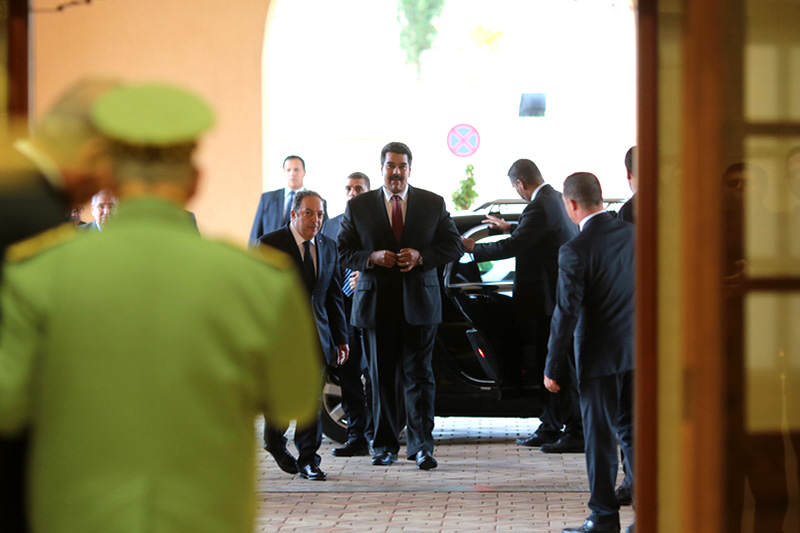Algeria’s Sonatrach and Venezuela’s PDVSA would target the US as a market for the two countries’ potential new blend of crude oil, a source at the state-owned Algeria company said Monday, as the two state-controlled companies continue talks on forming a joint venture for blending and marketing their crudes.
The source said talks have been ongoing for several months between Algiers and Caracas on the venture.
The head of Sonatrach, Said Sahnoun, said in February the companies were working on the blending initiative, which would be part of a “structural relationship” not limited to just the supply of oil.
This followed a move by PDVSA late last year to import Algerian light crude with a view to mixing the barrels with Venezuelan extra heavy crude to upgrade the oil.
Now, the two sides are looking to formalize the agreement.
“The venture’s role would be to mix the two types of crude to sell on the oil market. It could find a market anywhere, including the US,” the source said.
PDVSA in October last year imported a first shipment of 2 million barrels of light Algerian crude that was expected to be used to dilute extra heavy Venezuelan crude.
Algeria has seen a reduction in its exports of light crude to the US due to the increase in production of domestic shale oil.
Data from the US Energy Information Administration shows US imports of Algerian light crude fell to 29,000 b/d in 2013, from a high of 443,000 b/d in 2007.
Venezuela is also seeking new allies to help it develop its extra-heavy crude from the Orinoco Belt.
Last week, Venezuelan officials offered investment projects to Qatar to develop the Orinoco reserves in partnership with PDVSA, and Venezuelan oil minister Asdrubal Chavez said several Qatari companies were interested in investment projects.
In February, officials with several of PDVSA’s foreign partners said that joint development projects proposed for the Orinoco Belt were on hold because of poor global market conditions and the country’s own tense economic and political situation.
Venezuela and Algeria have also been particularly active in efforts to boost cooperation between OPEC and non-OPEC producers given the low oil price.
In the runup to OPEC’s November 27 meeting and with oil prices still sliding, both countries pushed for a cut in the exporter group’s collective crude output.
Venezuela’s ministers of oil and foreign affairs — Asdrubal Chavez and Delcy Rodriguez — last week traveled to Iran, Saudi Arabia and Qatar.
Algeria has also launched an initiative to encourage dialogue between OPEC and non-OPEC countries in a bid to begin collective action that would help stabilize oil markets through a coordinated production cut.
Source: Platts












